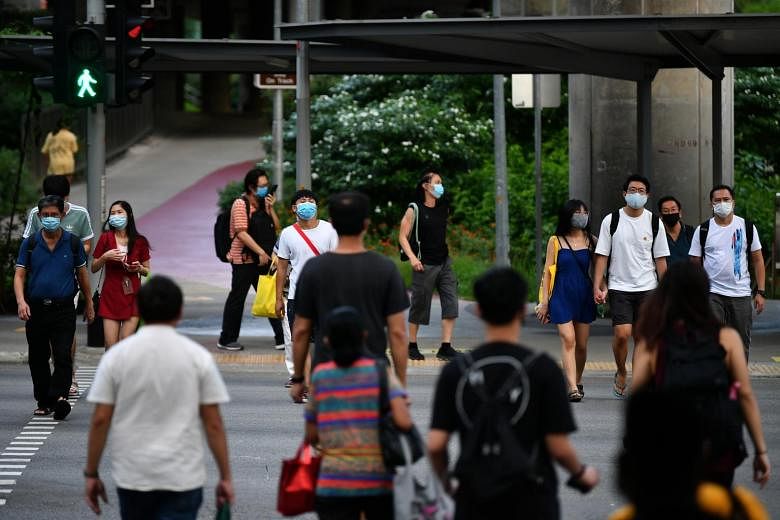If Singapore's strict measures to stop the coronavirus were a circuit breaker, the easing of these rules could be described as a "stress test", public health experts told The Straits Times.
They said the country's decision to ease the restrictions in three phases allows for flexibility to "switch activities on and off" if needed.
From June 2, schools will reopen gradually and about a third of Singapore's workers will be able to return to their workplaces.
Certain healthcare services will be allowed to resume and more shops to open.
But many social activities, including dining in and large gatherings, will still not be allowed.
"It is a very prudent approach," said Professor Teo Yik Ying, dean of the National University of Singapore's Saw Swee Hock School of Public Health. "We are testing to see what works and what doesn't, and if we are convinced that existing measures are sufficient, we move on to another level of stress testing four weeks later."
If Singaporeans were allowed to go back to their pre-pandemic lifestyles, it would be very difficult to tell which sector is contributing to any resurgence in cases, Prof Teo said.
Health economist Phua Kai Hong, an adjunct associate professor at the Lee Kuan Yew School of Public Policy, noted that Singapore's approach means it has the flexibility to "switch on and off" activities if necessary.
"Thus, controls can be more targeted at certain localities by time and space, by concentrating or easing control measures," he said.
Prof Teo added that if a specific sector is seen as contributing to the outbreak, measures are likely to be tightened for that sector, rather than having rules that affect the entire economy.
On the economic front, this means recovery will be a "long, painfully slow process", said economists.
Businesses will have to tackle manpower constraints and global supply chain disruptions, even as they put in place measures to keep workplaces virus-free.
OCBC chief economist Selena Ling said that given all this uncertainty, businesses are unlikely to be in a rush to restart their operations.
"There is likely to be still lingering caution about how fast to ramp up in the weeks and months ahead."
Singapore will see three-quarters of its economy resume when the circuit breaker ends and more people are allowed to return to work.
But many existing restrictions will continue, meaning that retail stores will stay closed and dining in at restaurants will not be allowed.
"That missing one-quarter of the economy means we will be a long way from business as usual," said Mr Christopher Gee, a senior research fellow at the Institute of Policy Studies.
He added that even with government help, the medium-term viability of businesses already operating on "razor-thin margins" before the pandemic - such as those in the food and beverage industry - is in question.
DBS Bank senior economist Irvin Seah said: "In a way, the pandemic is also a form of disruption that pushes businesses and individuals to rethink and review their typical way of doing business... and some of those changes could be permanent."
Apart from the number of new cases, indicators such as the source of cases or the number of unlinked cases will play a role in the Government's decision to further ease measures, said Prof Teo.
"I think the actions of the public will also convey a clear signal on whether the country as a whole is ready for more easing," he added.
"Things like being conscious at workplaces... that we have become as a whole more responsible in registering our movements. These can send a very clear signal that the vast majority of the population is ready to move on to the next phase."












